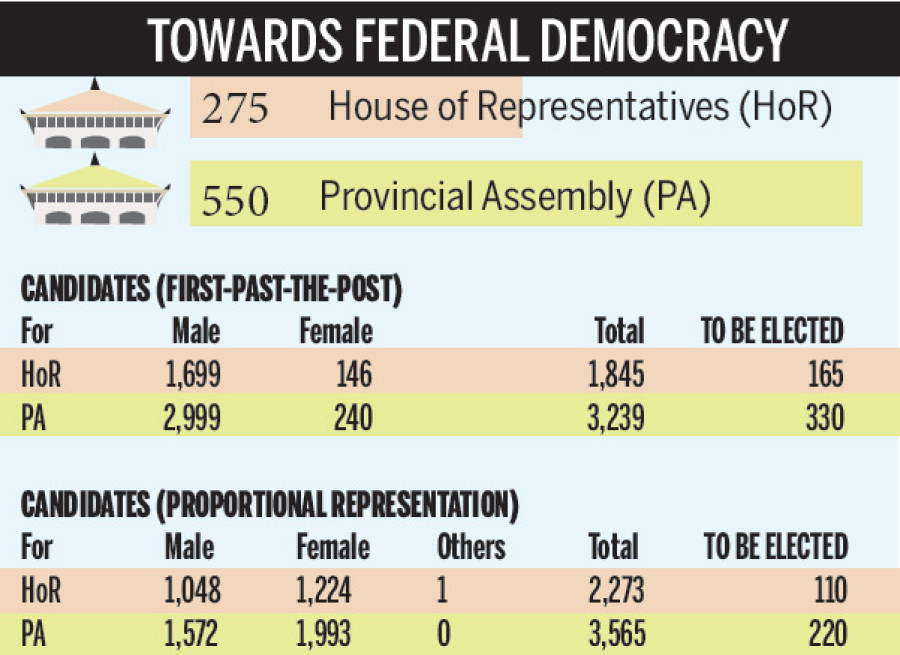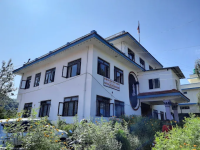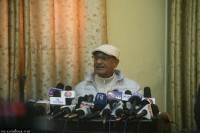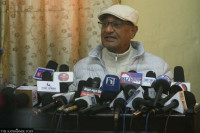Miscellaneous
A watershed moment
Nepal on Thursday marked a watershed moment after completing the second phase of House of Representatives (HoR) and Provincial Assembly (PA) elections under a new federal constitution adopted two years ago.
Kamal Dev Bhattarai
Nepal on Thursday marked a watershed moment after completing the second phase of House of Representatives (HoR) and Provincial Assembly (PA) elections under a new federal constitution adopted two years ago.
The historic polls, first phase of which were held on November 26, bring the Nepal’s long-drawn transition to federal democracy to an end, rekindling hope that the country would now embark on the path of stability and prosperity, constitutional experts and observers said.
The Election Commission (EC) has said results will be out within eight days. This will mean a new federal parliament and new government at the centre and seven provincial assemblies and provincial governments in seven provinces, in a great leap forward, as the move would ensure devolution of power—away from the centre to provinces to the local level.
Nonetheless, there are challenges ahead.
Bipin Adhikari, a constitutional expert, said post-election challenges include appointment of province chiefs and provincial capitals and giving shape to political structures in seven provinces, and inter-province as well as province-centre relations vis-à-vis fiscal and governance. “The new government at the centre should take the lead to ensure effective implementation of the constitution. There must be a qualitative increase in the pace of work,” Adhikari said.
The seven provinces, which have been until now identified only by number, are not named yet, while their capitals are yet to be designated. There have been some concerns over disputes in some provinces when it comes to naming provincial capitals. Provincial parliaments, as per the constitution, will settle these issues.
The government has said it would appoint provincial chiefs and temporary capitals of provinces “within a couple of days”. “The government should do sufficient homework while appointing province chiefs and must follow an inclusive policy,” Adhikari said.
Formation of the National Assembly, which along with the House of Representatives will complete the federal parliament at the centre, is yet another challenge.
A bill related to formation of the National Assembly is still pending in the Parliament Secretariat due to disagreement among political parties on its election process.
As per the constitution, the 59-member National Assembly will have eight members each from seven provinces. Three members will be appointed by the President. Among the 56 elected members, there should be at least three women, one Dalit and one from persons with disabilities or minorities from each province. They will be elected by an electoral college.
Political analyst Krishna Khanal pointed at some urgent tasks the parties need to seriously dwell on.
“Now, parties will have to work on building on the political systems envisioned by the new constitution. Institutions are already in place, but many twists and turns could emerge which political parties must handle with care,” Khanal said.
One of the major concerns that the parties have to deal with in near future is the issue of constitution amendment.
Madhesi and Janajati groups have objected to some provisions of the constitution, saying they marginalise some sections of the society. Protests in the run-up to and after the promulgation of the constitution claimed more than 50 lives in various districts along the plains.
The first amendment to the constitution in January 2016 failed to pacify the protesting groups and a second bid to amend the charter failed in August this year. The protesting Madhesi parties though agreed to participate in the electoral process; they are likely to raise the amendment issue again,.
The Nepali Congress and Madhes-based parties both have participated in the elections with a promise to amend the constitution. But it all will also depend on their strength in new Parliament.
Many are hoping for a stable dispensation at the centre to govern for five years, which could be instrumental in attracting investment and giving a new impetus to development efforts.
The local level elections held earlier this year have already installed local governments, and the federal structures envisioned by the constitution will soon become functional, said experts, adding that the country has indeed crossed a milestone by holding the elections successfully after a tumultuous decade since the end of the decade-long insurgency.




 16.12°C Kathmandu
16.12°C Kathmandu








%20(1).jpg&w=300&height=200)

